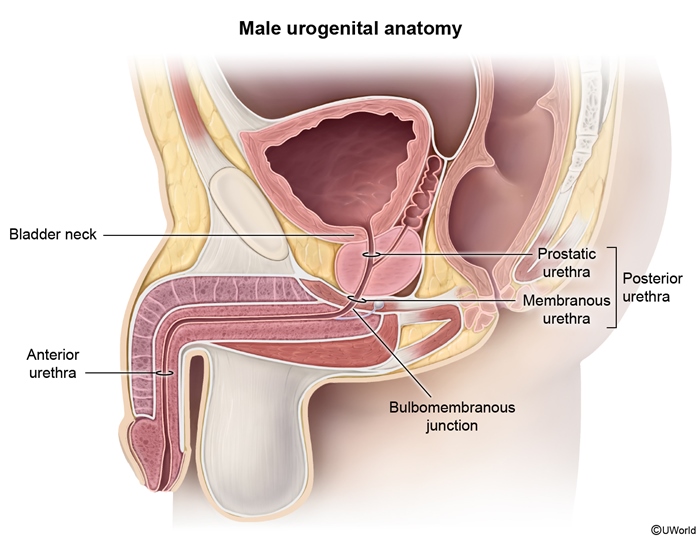Acute Prostatitis
Article Sections
Introduction
Acute prostatitis is an acute inflammation of the prostate gland typically caused by a bacterial infection (Figure 1). Most cases occur in young or middle-aged men when colonic flora (eg, Escherichia coli) gain access to the prostate by ascending the urethra. Presenting symptoms include dysuria, urgency, and frequency, along with systemic symptoms (eg, fever, chills) and perineal pain. The diagnosis is generally confirmed when digital rectal examination shows a warm, edematous, and exquisitely tender prostate.
Risk factors
Several factors can increase the likelihood of developing acute bacterial prostatitis:
- Urogenital tract infections (eg, cystitis, urethritis): Bacteria migrate from the urethra or bladder into the prostate via urinary reflux.
- Urologic instrumentation (eg, bladder catheterization, cystoscopy): Certain procedures may inadvertently introduce bacteria into the urethra.
- Urinary retention (eg, urethral stricture, benign prostatic hyperplasia): Incomplete bladder emptying and diminished forward flow of urine increase the risk for infection and reflux.
Continue Learning with UWorld
Get the full Acute Prostatitis article plus rich visuals, real-world cases, and in-depth insights from medical experts, all available through the UWorld Medical Library.
Unlock Full AccessFigures
